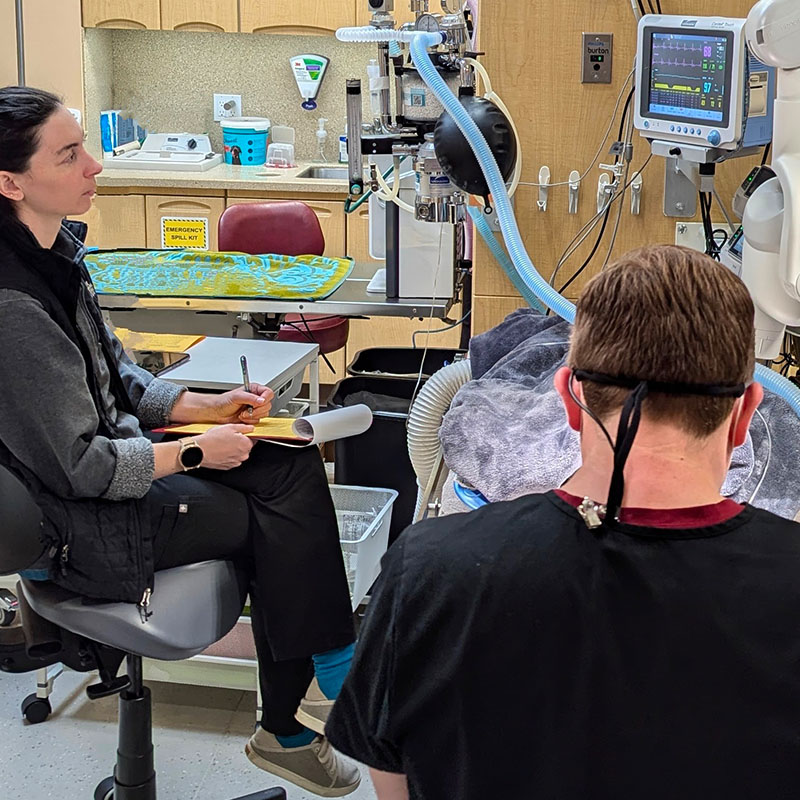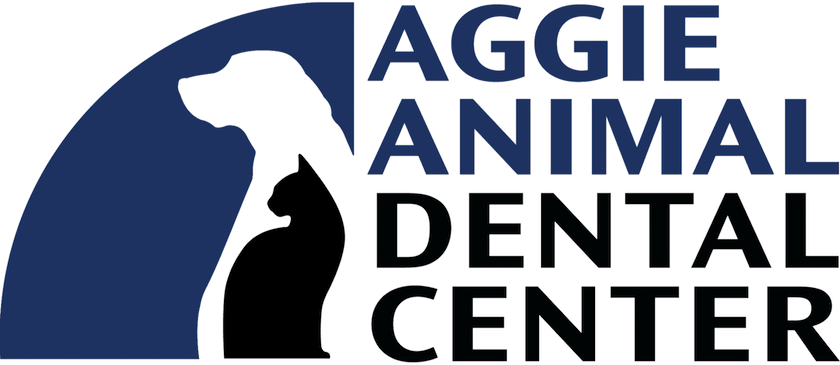Advanced Pet Anesthesia
At Aggie Animal Dental Center, we follow a safe and highly effective approach to anesthesia for your pet. General anesthesia is essential for diagnosing and treating oral diseases, allowing our team to perform procedures with precision while ensuring your pet remains comfortable and stress-free. Our commitment to advanced pet anesthesia prioritizes your pet’s safety, especially for those with unique medical needs.
Comprehensive Care for High-Risk Pets
Many pets with dental disease are geriatric or have underlying medical conditions, such as heart murmurs or kidney disease, which may raise concerns about the risks of anesthesia. At our clinic, we specialize in providing anesthesia for pets with complex health needs, including those with diabetes, advanced age, or weighing as little as 2.0 lbs. Our experience includes successfully anesthetizing dogs up to 19.5 years old and cats as old as 21 years. We have extensive experience handling delicate cases with a focus on both safety and comfort.
Our approach ensures every pet receives the personalized attention they need for a successful outcome. By employing meticulous planning and advanced protocols, we aim to alleviate concerns associated with anesthesia in high-risk patients. Our facility is equipped with advanced technology to support pets with even the most intricate medical profiles. No matter the challenge, our team is equipped to deliver care tailored to your pet’s unique requirements while ensuring their safety and comfort at every step.

Safety Measures for Advanced Pet Anesthesia
Our advanced anesthesia protocols are designed to maximize safety and comfort for every patient. Here are the main points of our approach:
- Pre-Surgical Assessment: A thorough physical examination and blood tests are conducted before any procedure. Additional diagnostics, such as chest X-rays, may be performed to evaluate your pet’s overall health and anesthetic risk. For anxious pets, anti-anxiety medications may be prescribed for at-home administration prior to the procedure to reduce stress and enhance anesthesia safety.
- Individualized Anesthesia Plan: Each pet receives a personalized anesthesia protocol based on their health, medical history, and the procedure requirements. The dental specialist overseeing your pet’s care determines the anesthetic approach, and for complex cases, we consult our board-certified anesthesiologist for specific recommendations.
- IV Catheterization: An intravenous catheter is placed to facilitate the administration of fluids, antibiotics, and other necessary medications during the procedure. IV fluids help maintain blood pressure, support kidney function, and ensure overall stability throughout the process.
- Pain Prevention: Local anesthetics, such as Novacaine®, are administered before oral surgery to prevent pain. Additional pain management protocols may include morphine derivatives, non-steroidal anti-inflammatory drugs (NSAIDs), gabapentin, and sedative-analgesic combinations tailored to your pet’s needs.
- Conservation of Body Temperature: To prevent hypothermia, particularly in cats and small dogs, we utilize warmed cushions for your pet to rest on, warm-air circulating systems, and heated IV fluids. These measures promote a quicker recovery by maintaining normal body temperature throughout the procedure.
- Continuous Monitoring: A dedicated veterinary technician monitors your pet’s vital signs during anesthesia, including heart rate and rhythm, respiratory rate and quality, body temperature, ECG, blood oxygenation (SpO2), end-tidal carbon dioxide (ETCO2), and blood pressure.
- Board Certified Veterinary Anesthesiologist™ Support: Either on-site (working with the adjacent Sams Clinic), or remotely, a Board Certified Veterinary Anesthesiologist™ checks in on our anesthetized patients and helps guide decision making when challenges arise.
*There may be occasional days when there is not an anesthesiologist onsite.
Why Choose Aggie Animal Dental Center for Advanced Pet Anesthesia?
- Expertise in managing high-risk and geriatric pets.
- Comprehensive pre-surgical assessments tailored to each pet’s needs.
- Advanced monitoring technology for real-time assessment during procedures.
- Compassionate care that prioritizes comfort and safety.
- Access to a Board Certified Veterinary Anesthesiologist™, a unique offering among dental specialty private practices in California.
Choosing advanced pet anesthesia at Aggie Animal Dental Center ensures that your pet receives the attentive, expert care they deserve. Our dedicated veterinary team is here to provide peace of mind, no matter your pet’s health challenges. Contact us today to learn more or schedule a consultation.
